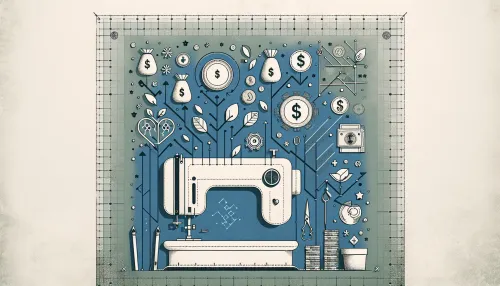Unraveling the Enigmatic World of Behavioral Biases in Personal Finance

Personal finance and investing are deeply intertwined with human behavior. The decisions we make regarding money are not always rational; they are often influenced by psychological quirks and biases that can have a profound impact on our financial well-being. In this article, we delve into the fascinating world of behavioral biases in personal finance, shedding light on the mysteries of behavioral economics, cognitive biases, and their influence on investment behavior.
As individuals, we like to believe that our financial decisions are purely rational, based on sound logic and reasoning. However, behavioral economists have long recognized that our financial choices are significantly influenced by psychological quirks and cognitive biases. These biases can lead to suboptimal decision-making, impacting our ability to save, invest, and plan for the future effectively.
Exploring Psychological Quirks in Financial Decisions
From the anchoring bias, where individuals rely too heavily on the first piece of information received when making decisions, to the confirmation bias, where we seek out information that confirms our existing beliefs while ignoring contradictory evidence, these psychological quirks play a pivotal role in shaping our financial behaviors. Recognizing and understanding these biases is crucial for developing strategies to mitigate their effects and make more informed financial decisions.
Behavioral economics provides valuable insights into why people often make irrational financial choices. Traditional economic theory assumes that individuals always act in their best interests, maximizing utility and minimizing costs. However, behavioral economics acknowledges that human decision-making is far more complex and can be influenced by factors such as emotions, social norms, and cognitive limitations.
Understanding Behavioral Economics in Money Matters
With this understanding in mind, it becomes apparent that traditional economic models may not always accurately reflect real-world financial behaviors. By embracing the principles of behavioral economics, individuals can gain a deeper understanding of their own financial decision-making processes and implement strategies to counteract irrational impulses that could negatively impact their financial future.
Investment behavior is particularly susceptible to cognitive biases, which can lead investors astray and result in suboptimal outcomes. For example, the herd mentality bias often drives investors to follow the crowd without conducting thorough due diligence, leading to market bubbles and crashes. Similarly, loss aversion bias can cause investors to make hasty or ill-advised decisions out of fear of potential losses rather than a rational assessment of potential gains.
By recognizing these cognitive biases and understanding how they shape investment behavior, individuals can take proactive steps to mitigate their impact. Developing a disciplined investment strategy based on rational analysis and long-term goals can help counteract the detrimental effects of cognitive biases, ultimately leading to more prudent investment decisions.
Related Article: The Art of Money Mastery: Lessons in Growing Wealth and Navigating Financial Waters
Cognitive Biases and Their Impact on Investment Behavior
Emotions play a significant role in personal finance, often leading individuals to deviate from sound financial principles. From the euphoria of a bull market to the despair of a bear market, emotional biases can cloud judgment and prompt reactive decision-making that is not aligned with long-term financial goals.
Moreover, certain cognitive biases such as overconfidence can lead individuals to overestimate their ability to predict market movements or select winning investments. This overconfidence can result in excessive trading, higher transaction costs, and ultimately subpar returns.
Emotional and Cognitive Biases in Personal Finance
Understanding the intricacies of emotional and cognitive biases is essential for developing resilience against impulsive decision-making driven by these biases. By adopting a measured approach based on well-defined financial plans and a long-term perspective, individuals can reduce the detrimental effects of emotional and cognitive biases on their personal finances.
Unraveling the enigmatic world of behavioral biases in personal finance is imperative for anyone seeking to enhance their financial well-being. By exploring the psychological quirks that impact financial decisions, shedding light on the mysteries of behavioral economics in money matters, understanding cognitive biases' influence on investment behavior, delving into emotional and cognitive biases in personal finance, and unmasking the hidden forces driving irrational financial decision-making, individuals can arm themselves with knowledge and strategies to navigate the complexities of personal finance with greater confidence and insight.
Understanding and acknowledging these underlying forces can empower individuals to make informed financial choices that align with their long-term goals while mitigating the detrimental effects of behavioral biases. Through awareness, education, and deliberate decision-making rooted in sound financial principles, individuals can unlock their potential for achieving lasting financial security and prosperity.
Frequently Asked Questions
Psychological quirks refer to cognitive biases that influence how individuals make financial decisions. These biases can lead to irrational choices, affecting savings, investments, and overall financial planning. Understanding these quirks is crucial for improving decision-making and achieving better financial outcomes.
Behavioral economics explores how psychological factors impact economic decisions. Unlike traditional economics, which assumes rational behavior, it acknowledges that emotions, social influences, and cognitive limitations often lead to irrational financial choices. This understanding helps individuals make more informed decisions.
The herd mentality bias occurs when investors follow the actions of others instead of conducting independent analysis. This behavior can lead to market bubbles or crashes as individuals collectively make poor investment choices based on group behavior rather than sound judgment.
Emotional biases significantly impact personal finance by clouding judgment during market fluctuations. For instance, fear during a downturn may prompt hasty selling, while euphoria in a bull market can lead to reckless spending. Recognizing these emotions is vital for maintaining sound financial practices.
Loss aversion bias refers to the tendency of investors to prefer avoiding losses over acquiring equivalent gains. This bias can lead to overly cautious investment strategies and prevent individuals from making rational decisions based on potential benefits, ultimately hindering financial growth.
Understanding cognitive biases is essential for investors as it helps them recognize irrational behaviors that may affect their decision-making. By identifying these biases, investors can develop strategies to mitigate their influence, leading to more disciplined and informed investment choices that align with long-term goals.
Yes, emotional intelligence can significantly enhance financial decision-making by enabling individuals to manage their emotions effectively. By recognizing emotional triggers and maintaining a rational perspective, individuals can avoid impulsive decisions and adhere to well-defined financial plans, ultimately improving their financial outcomes.
To mitigate the effects of behavioral biases, individuals should educate themselves about these biases and develop structured decision-making processes. Creating a comprehensive financial plan, setting clear goals, and regularly reviewing investment strategies can help counteract impulsive behaviors influenced by cognitive and emotional biases.
Check Out These Related Articles

The Gig Economy Unleashed: Redefining Personal Finance for Digital Nomads

Transforming Tedium into Treasure: Mastering the Art of Mindful Saving

Bridging Budgets and Beauty: The Surprising Influence of Personal Finance on the Cosmetics Industry

